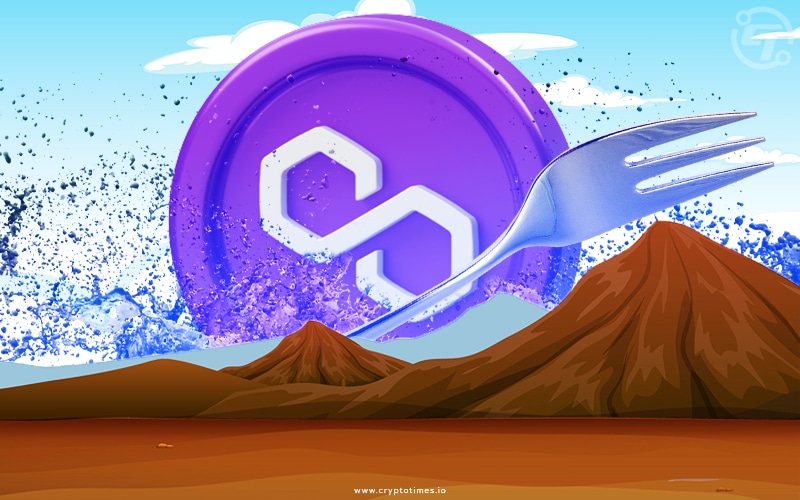Layer 2 PoS blockchain Polygon announced a hardfork to its platform is set to take place on January 17, 2023.
According to the announcement, the hardfork will aim to reduce the severity of gas spikes and address chain reorganizations (reorgs) in an effort to reduce time to finality.
By doubling the value of the “BaseFeeChangeDenominator”, Polygon claims to help smooth out the increase/decrease rate in base fee for when the gas exceeds or goes below the specified gas limits in a block, gas fee spikes will be reduced.
Because it has backtested the patch against historical Polygon PoS mainnet data, Polygon is confident that it will function.
In an attempt to moderate the high swings in gas prices, it is anticipated that the rate of change for the base gas cost will decrease to 6.25% (100/16) from the present 12.5% (100/8).
Another issue that Polygon aims to tackle with the hard fork update is chain reorgs. Blockchain networks might momentarily split in two due to reorgs, which can happen as a result of network issues or malicious assaults.
This hard fork upgrade shortens a single block producer’s production time from the current 128 seconds to just 32 seconds by reducing the sprint length from 64 to 16 blocks.
The hardfork will assist decrease the sprint length, which will enhance transaction finality and lessen the frequency and depth of reorgs.
There will be no change in overall rewards because the modification has no impact on how many blocks a validator produces or the total time.
Before January 17, all Polygon PoS nodes must upgrade to Bor, they will have to upgrade in order to maintain their nodes in sync.
dApps built on Polygon PoS won’t be impacted by the hardfork during or after it. There is no need to get ready for the updates for delegators or those who just hold MATIC tokens.
Also Read: Cardano’s Vasil Hardfork Successfully Launches on Testnet






